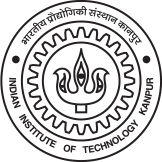
Prerequisites:
3-0-2-11
Course Contents
Earth System: Lithosphere, Hydrosphere, Cryosphere and atmosphere and their interactions Solid Earth: Shape, size, interior of the solid earth. Geological materials: rocks, soils, minerals (clay mineralogy), Engineering and Genetic classification of soils, rocks, rock cycle, rock water interaction. Earth Processes and their consequences, Geo-morphological features, structures (folds, faults) Earthquakes: Causes, classification, magnitude, intensity, Historical earthquakes, Seismic hazards zoning, strong ground motion, earthquake prediction Landslides and Subsidence: Causes, classification and monitoring; Ground water: Groundwater resources and quality of ground water Geology of India : Physiographic and tectonic divisions; Mineral resources. Geophysical mapping: seismic, resist Animal Tissues & Organ Systems: Concept of self assembly, energy and evolution, Basic structure of the cell, Organization of the cells to from different tissue systems, Assembly of different tissue system to form organ system, Crosstalk of different organ system to form a dynamic living system. Homeostasis: Acid, Base, Salt, Concept of pH, Intracellular & extra cellular fluid, Thermo regulation. Transport Phenomenon: Energy dependent and energy independent transport of molecules ina system. Nervous System: Organizational assembly of the nervous network in the body and its cross talk with different organ system. Sensory System: Basic anatomy of the different sensory system of the body, Signal reception from the outside environment by these different sensory modalities and relaying the information to the nervous system. Endocrine System: Outline of the different endocrine system in the body and their functioning, Cross talk between endocrine and nervous system in carrying out physiological functions Circulatory System and Blood: Network of the blood vessel in the body and their fine structural modifications, Composition of the circulating fluid: Blood, Different between blood and plasma, Structure of the pumping station: the heart, Functioning of the heart, ECG recordings, Control system of the heart. Immune System and Lymphatic System: Basic concept of immunity, Classification of immune system, Basic functioning of different components of immune system, Basic concept of lymphatic system, Crosstalk between immune system nervous system and endocrine system Musco skeletal System: Anatomy of the musco skeletal system, Tissue organization of the bone, cartilage and muscle, Role of the musco skeletal system in movement. Respiratory System: Structure of the lungs, Process of gas exchange (C02 and 02) in the lungs to provide oxygen rich blood to the body Digestive System: Anatomy of the digestive system, Functioning of the individual organivity, radar, geo-tomography, logging Remote sensing, GIS and GPS : Basic principles and their applications in monitoring Lithosphere, Hydrosphere, Cryo sphere and Atmosphere; Criteria for site selections for Dam, tunnels, waste/radioactive disposal sites.
Topics
Current Course Information
Instructor(s):
Number of sections:
Tutors for each section:
Schedule for Lectures:
Schedule for Tutorial:
Schedule for Labs:



